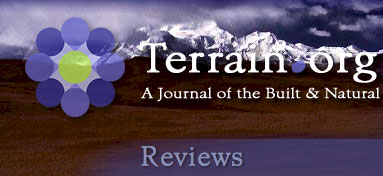
 |
|
|
Crazy for Crazy Love Simmons B. Buntin reviews Crazy Love, new poems by Pamela Uschuk
For Pamela Uschuk and her newest book, Crazy Love: New Poems (Wings Press), peace, love, and understanding are less funny than they are crazy. And perhaps more importantly, while they may involve pain and the wickedness of the world, they are not despairing, nor dark and dreary. Rather, Uschuk’s poems cut into the world, and so the reader, with a driving combination of narrative and lyrical verse that makes you want to sing of the world’s light despite the darkness. There’s no time, nor any longer the desire, to rest your head on your pint glass and slough away the day. Take, for example, the opening to the poem “Planting Tigritas After Snow in April:”
You don’t have to know the brute force of Colorado’s high-country winds to feel them here, and feeling is what Uschuk’s poems are all about. But how are they crazy? Are they mad, delirious perhaps? Sometimes they are:
What appears at first as madness runs, however, deeper, and truer, as passion: passion for life and love and the curiosities—of the flesh, the heart, the mind—that come from living in and exploring any place. Colorado, the setting of many of these poems, can drive you crazy in its beauty, harshness, and organic paradoxes. What it takes to discover the essence of the place, though, is the ability to fully explore it, and Crazy Love is, in part, Uschuk’s exploration of Colorado and the other places she has lived and visited—and just as importantly the people she has lived with, and lived for. The collection of 44 poems is divided into four sections—Crazy Love, Hit and Run, We Thought No One Could See Us, Fighting the Cold—each named for a poem in its section. But each of the title poems is not necessarily the definitive poem. Rather, the poems as a whole build intricately and sometimes bracingly upon each other so that each section stands, quite compellingly, on its own. And yet they not only work but, thankfully, spire upwards together so that the book itself is a prize like each of the poem-treasures held within. Perhaps “Peeling the Kitchen,” the closing poem to the book’s first section, best exemplifies the completeness and yet integrated nature of each section. Uschuk writes, “Beneath everything, the harsh ash-smeared / plaster is the logic that holds.” And then she ends:
It’s a lovely metaphor for the process of stripping down the kitchen, but also a fitting parallel to the section and indeed the book itself. Or take the opening lines to “Geometry Lesson,” from the book’s second section:
Love—more specifically the passionate feeling of love—is the common element here. And while our Poetry 101 courses may have taught us never to use the word “love” in a poem—or at least mine did—I’ve read few poetry books that use the term as elegantly and infectiously as Crazy Love. These are not your standard love poems, no. But they are poems of truth, and love may be that highest of aspirations. But let us not kid ourselves that love is always tidy, or beautiful, or even passionate. Moving through Crazy Love, that harsh Colorado wind of the book’s beginning makes its way, in one chilling way or another, into North Carolina ghost stories and rare high desert fog and, in the vivid poem “Saving the Cormorant on Albemarle Sound” into a wild canoe-born struggle to save a “snarled bird” from the rising tide:
In reading Uschuk’s poems [you can read three of her newest poems in this issue of Terrain.org], the narrative structure and length, not to mention stunning imagery and language, make it easy to compare her to poets like Elizabeth Bishop. It’s a fair comparison. But I’ve read Bishop in-depth recently again, and wasn’t as drawn to her poems this go-around as I was when I first read them, or even re-read them. Why? Because Bishop’s poems seem to lack much of what I find in Uschuk’s poetry: not just passion, but a searing passion mixed, on occasion, with politics and always driven by the sweet ambition of unconditional love. Perhaps that’s why this book is titled Crazy Love—its poems thrum with voice, image, and a constant pursuit of love as beauty, as truth. Love is, the final poem concludes in its title, like “Flying Through Thunder:”
Not even Elvis Costello’s rich lyrics and rhythm bring such clarity. Crazy Love is a superb collection of poems—the most rewarding I’ve read in quite some time. Call me crazy for Crazy Love. I wager you’ll be crazy for this collection, too.
|
|
||||||||||||||||||||||||||||||||||||||||||||||||||||||||||||||